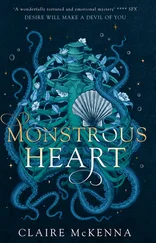“Oh God,” Jack whimpered. “My parents…”
His mother’s last email from back in late September couldn’t be tucked away and compartmentalized any longer. He had to face it, to face her.
I don’t know where you are, Jack. Just that you are not with us.
How carefully his mother worded that statement of fact, not wanting her last communication to serve as incrimination. Her care did nothing to erase his crime of absence.
We are running out of food. Your father wants to take the car and drive further from the city. We have a canister of gas that he hid in our bedroom closet so we could keep an eye on it at night. I left a key to the house under a rock by the birdbath. There are too many things to say. I don’t know where you are, Jack. Just that you are not with us. We love you and will pray for you. We will pray for us all.
Jack turned to the wall and started sobbing. Moments before, Maya didn’t want Jack to touch her, crowd her, further invade her personal space, but she immediately got back into bed and pressed against his long, curled shape until it stopped shuddering.
* * *
CAPTAIN WEBER SPENT too many sleepless nights combing the internet. Most familiar sites and search engines were down with a 503 service unavailable error. He tried to remember or even guess URLs to try. Satellites on the ship detected no new inbound email communications either. Healy ’s ISP in Seattle was no longer functioning. The last communication from the Navy on November 26 reported that the overwhelmed Army and National Guard had pulled out of several West Coast cities and retreated to islands and peninsulas with natural barriers.
Weber had last heard from his brother with an email in late October, stating that Seattle was “a living nightmare.” Even the suburbs were “bad, very bad.” People carried weapons with them: guns, crowbars, lead pipes, and baseball bats. They didn’t say hello to one another, but they nodded to convey a message: I understand that we are both human beings doing what we can to survive, and I wish you all the luck, but if you threaten me or my family, I’ll bash your skull in. Bodies lay mangled in the streets.
Weber’s brother promised to take care of his wife, Karen, and their two children while he was still away at sea. Both families planned to pack up their campers and drive into Washington’s national parks, where they might find safety in the deep forest, for a short time at least. Karen left a warning in her heart-wrenching goodbye.
I love you, Martin, more than my life. The children love you just as much but don’t come home. It’s no one’s home anymore.
Weber was just over fifty but had two young children. It had been difficult for Karen to conceive with him gone for so many long voyages to the Arctic. They had given up hope by the time she got pregnant during a Christmas leave. A beautiful daughter and son were brought into the world three years apart on the same sunny day in September, never to be taken for granted. He swore to find the three of them in the chaos or most likely die trying.
Until Weber could reach dry land, he prayed. Hard. In between rote recitations, Weber questioned the purpose of the comet. Was UD3 God’s way of culling the unworthy, like the floods in Genesis? Did God wish to set back the clock of civilization to biblical times, when life was more righteous? But what if there were no survivors? UD3 was big. Too big. Why would God kill all His children? Were they only a failed experiment?
At 1945 hours, Weber made an announcement over the pipes that it was time to gather in the helicopter hangar. Healy ’s second-in-command joined him on the walk over. They didn’t say much, but it was nice to have someone by his side as he entered the hangar and faced the crew and passengers. Weber walked to the center of the large space and cleared his throat.
“Thank you for gathering here tonight…” he began.
It sounded like the hollow introduction of a funeral. Weber was never ready with the right words while in the moment. They only came after draft upon draft of feeble attempts. He pulled a folded piece of notepaper out of his uniform pocket. One side was covered with the perfect, slanted script that nuns had beaten into him before computers made the craft obsolete.
“We have no communication with leadership. It is time to make our own decision,” he read aloud. “It may not be standard military practice to put decisions to vote. But rules were not written for days like these.”
The captain looked at everyone, even the people standing in the back. Weber was a tall man (thank the Lord) and still wanted to be the sort of leader who looked into the eyes of others.
“If we remain at sea, as long as we can, we’ll continue to have the safety of this ship. We won’t suffer along with the rest of our families, friends, and neighbors. But that is a form of suffering unto itself. You will have to live with the choice of letting them go.”
An image of Karen came to mind unbidden. She wore her favorite sundress with the floral print at the hem. He could never remember the name of the flowers. She always laughed and rolled her eyes when he asked.
“If we return to mainland instead,” Weber said, swallowing emotion, “we will have to face what they have faced…”
Did he have to put such horrors into words? Did he have to say murder, rape, gang rule, death cults, and even rumored cannibalism out loud?
“You’ve all seen the last reports. You’ve heard the same stories. Seattle is a disaster zone. We could take the Puget Sound past Tacoma and anchor at Steilacoom. It’s a three-hour hike to Joint Base Lewis-McChord, if it’s still operating. That’s your safest bet but, honestly, I don’t know your chances…”
He had to stop there. The decision went to vote.
“All in favor of returning to mainland?”
Captain Weber immediately raised his hand and counted all the voters who followed suit.
“All opposed?”
The decision would be close, and a few voters were abstaining by looking at the floor, racked with indecision. Weber noted that most of the remaining scientists now raised their hands to stay at sea. They were either young and unmarried or lived outside of Washington State. Weber also noted, with a sinking stomach, that some crewmembers had hands raised—and all of them were women, who would be easier targets for violence.
His eyes caught two clasped hands raised in the air for a double vote. One belonged to a scientist and the other to a guest passenger, a photographer who always walked the deck with a camera. This couple was inexplicably, undoubtedly in love. Of course they would want to stay safe on the ship, Weber thought, as long as they had each other.
“Majority votes to return,” he announced.
And now they had only to wait and wonder what they would return to. Healy was sailing from the Arctic with its time frozen in the past; the ship was a capsule of a civilization that had taken millennia to build. Like a house of cards, it had all come fluttering down into the bloody anarchy of their new present.
* * *
EVERYONE ON HEALY did their best to provide privacy and protect Maya’s and Jack’s strange good fortune in finding love. In this spirit, Captain Weber approached them two days after the vote.
“There may be a way,” he whispered, “to keep what you have. While you can.”
They listened.
Healy was nearing the Aleutian Islands. Weber told the couple they could take a month’s worth of supplies onto one of the ship’s survey boats and disembark in the morning. If they followed the captain’s coordinates at a steady pace, they would reach a small island recently abandoned by its native Iñupiat population. Thawing permafrost had caused its buildings to tilt, buckle, and sometimes collapse. Rebuilding was pointless when rising sea levels were returning the island to the Bering Sea at the rate of three to nine feet a year. The captain told Jack and Maya that any homes still standing could make for a temporary shelter out of the wind and weather. Then, at daybreak the next morning, they could continue southeast and reach the chain of Aleutian Islands.
Читать дальше












